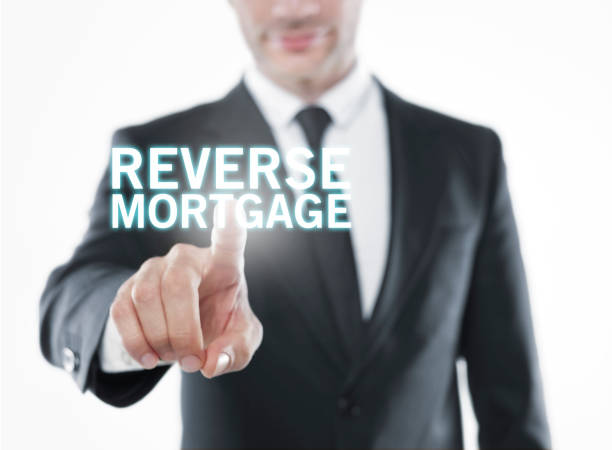The reverse mortgage is a way to obtain an income to complete your payment when you retire, taking advantage of your home. It can be instrumental, but it also has its risks.
There are many ways to take advantage of a house to retire better and complement the public pension. The most common is planning retirement and saving through products such as pension plans or investment funds.
An additional alternative focuses on your home: the reverse mortgage for those who have reached or are about to get retirement age.
What is a reverse mortgage?
The Bank of Spain’s Reverse Mortgage Guide, which you can download here, defines a reverse mortgage as “a credit or loan guaranteed with a mortgage that falls on the main residence (also on other homes), granted, all at once or through benefits periodic, to a person who must be over 65”.
The reverse name mortgage describes this financial product very well that can be used in retirement. And it is that in a very summarized way, it is money that the bank will give you for the house during your life while you can continue using it. Upon death, and depending on the modality, your heirs will be able to choose between returning the money to the bank and recovering the home or collecting the remainder of the loan.
Requirements to apply for a reverse mortgage
Who can apply for a reverse mortgage? This product is limited to people over 65 years of age, although it can also be accessed by people in a situation of severe dependency or significant dependency. From there, each entity can restrict this home loan to people over 70 years of age or the age they deem appropriate.
As is logical, it is also necessary to have a home owned, if possible, free of charges – which is why the cancellation of the previous mortgage is so important. If not finished paying the mortgage, the reverse mortgage loan would be extended to face it. In other words, if there are 50,000 euros left to spend on the mortgage, those 50,000 euros would be added to the valuation of the house as part of the reverse mortgage loan.
Ideally, the house is the habitual residence since, in this case, the Documented Legal Acts Tax will not have to be paid when constituting the loan. However, a second home would be just as valid.
In this sense, most banks will look for high-value homes, which will allow them to get more out of the loan and better protect themselves.
Can I apply for a reverse mortgage on a mortgaged home?
Is it possible to contract a reverse mortgage with an already mortgaged home? The answer is negative with a “but.” The bank will require you to pay off the loan first, but they will advance the money to do so in most cases.
If the bank grants you a reverse mortgage, it is because it is interested in it, and it will continue to be interested in it, even if you receive less money as rent and something more as an advance to pay off the mortgage that is still outstanding.
What income can be obtained with a reverse mortgage?
The loan amount will be linked to the home’s value and how you want to collect it. In case of charging it all at once, the amount will be the appraisal that the bank makes of the house. However, it is customary to use the reverse mortgage to obtain a monthly, quarterly, or semi-annual income.
In this case, the rent will depend on the home’s value on the one hand and the age of the contracting party. So that you understand it better, if you hire her at 75 years old, you can charge more each month than if you do it at 65 years old. The reason is that there is ten years less rent to collect on the house’s value.
Is the reverse mortgage money running out?
There are several types of this mortgage loans. With the most basic, the loan will give what the house is worth. Once it is finished, the money to be received also ends. In other words, you will charge for the reverse mortgage that they give you for the house for the duration of the money based on what you want to charge each month. For example, a home valued at 100,000 euros will earn 10,000 euros a year for ten years.
As this amount is not always enough, banks have a solution. Most banks allow you to take out deferred life annuity insurance. With this insurance, if the person or persons who sign survive the age calculated for the operation (if the mortgage money ends), they would continue to collect their monthly rent. Of course, these insurances are usually expensive, and many entities will try to organize them in a single payment at the beginning of the mortgage signing.
This single payment of reverse mortgage income insurance involves advancing all the insurance money in a single charge instead of paying it monthly.
Are taxes paid on the reverse mortgage?
The money received in this way has tax advantages. These amounts are not subject to income tax because they are dispositions of credit and not income to make the income tax return.
In other words, you will not have to pay taxes on the reverse mortgage.
Things change when the income insurance money is received since that capital does pay taxes in the 2017 personal income tax. This would happen when the housing money runs out because the older adult has exceeded the life expectancy with which they worked. The bank. In this case, and as long as the reverse mortgage contract does so, a deferred life annuity insurance will be activated, for which you will have to pay in the income statement. The amount to be paid will be only 1.44% of what has been received, thanks to the tax advantages.
How the reverse mortgage money is repaid
The retiree who signs the reverse mortgage does not have to repay any money. Unlike an average loan in which the amount to be repaid is reduced, this amount only goes up with a reverse mortgage. In the end, those who will pay will be the heirs, although, in reality, they will not have to loosen their pockets if they do not want to.
When the owner dies, the heirs will choose between returning the money to the bank to keep the house, selling the home, paying the debt, and even signing a new mortgage to pay off the debt generated gradually. Most entities will give you a year to deal with the debt, which will usually be much less than the house’s value. So much so that it is expected that barely 50% of what the mortgaged home is worth on the market is consumed.
And could the rest of the loan be collected, and the bank keeps the house?
This solution can be proposed to the bank, but no entity will accept it. And it is that the bank usually has little interest in keeping the home. What’s more, if it does, one should be suspicious because its market value would be much higher than the remainder of the loan.
Can a reverse mortgage be paid off early?
Yes. Any reverse mortgage should be able to be canceled early at any time. Moreover, most entities do not usually charge additional mortgage fees.
The money to be returned will be the one that the bank has lent us, plus the mortgage constitution expenses and, of course, the interest.
Does the owner’s house change with a reverse mortgage?
The mortgaged home does not change ownership at any time. In other words, the house will continue to belong to the person who signs the loan, who will also be able to continue living in it.
Like any mortgage, this is nothing more than a loan in which the house acts as collateral. You remain the owner.
Can I rent my house with a reverse mortgage?
As the house remains the property of the older adult, they can do with it whatever they want, including selling it, as long as they pay off the reverse mortgage they have signed.
What expenses does a reverse mortgage have?
To formalize a reverse mortgage loan to complete retirement, you will have to face the AJD unless it is the habitual residence. To these costs are added those of the notary and the registry, as well as those of opening and constitution of the loan. Typically, the bank advances these expenses on account of the loan.
What will have to be paid now is the cost of an appraisal of the house, which can amount to more than 400 euros in the best of cases.
To these must be added the interest that the bank will charge, which will be higher the more extended the mortgage lasts.
What does the bank charge for a reverse mortgage?
The bank is one of the parties interested in signing this type of loan. The financial entity charges an interest rate for the money it lends to the person who signs the reverse mortgage. This interest rate will be reflected at the end of the loan when the time comes to recover the home, that is, to cancel the loan.
When canceling the reverse mortgage loan, the entity will make accounts. The older adult’s money will be added to the initial expenses and the interest generated. That will be the amount borrowed, and that will have to be returned to keep the house.
Advantages of the reverse mortgage
The main advantage of a reverse mortgage loan is that it allows you to monetize an asset, the house, without selling or renting it. If you are clear that you will not have enough with the public pension, this product will allow you to obtain additional income without giving up your home or having to pay rent.
In addition, it allows the heirs to recover the house if they wish or, failing that, collect the money that remains on loan.





